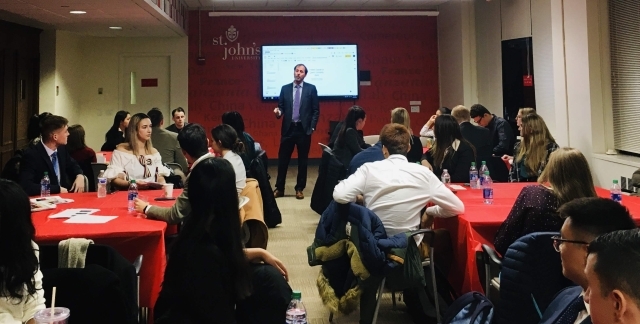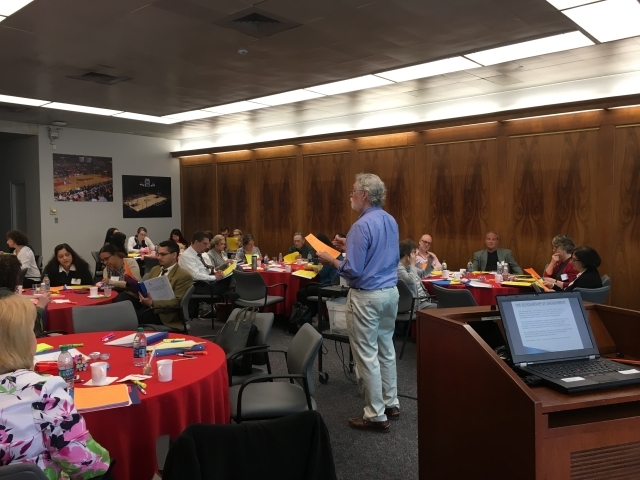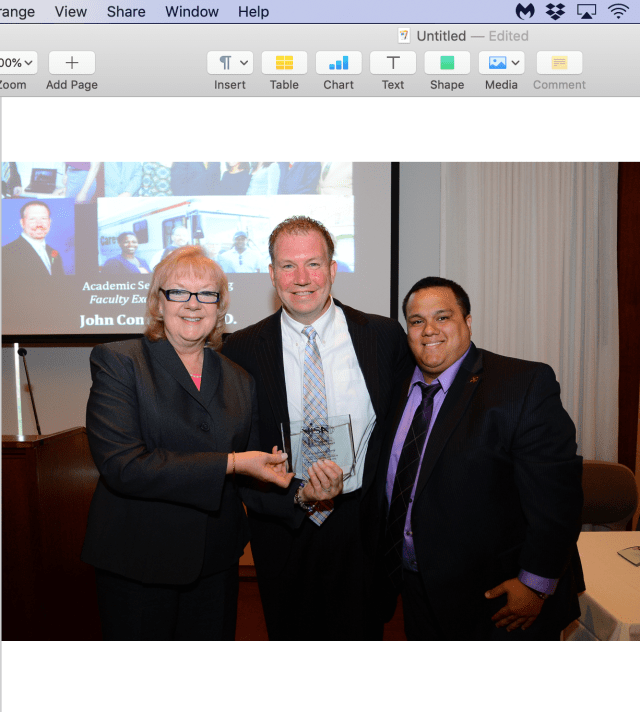





Community Engaged Learning Faculty Resources
- Home
- Who We Are
- Community Engaged Learning Faculty Resources
The Office of Community Engaged Learning at St. John's University is committed to providing resources and tools for faculty to be able to incorporate community engaged learning effectively into their courses.
For St. John’s University Faculty Members looking to participate in Community Engaged Learning, as well as have access to more CEL resources, please visit our public Canvas page titled, The Institute for Vincentian Impact.
Under the IVI umbrella’s modules, faculty members will find access to all of the Community Engaged Learning’s resources and information.
Learn More About CEL
Each year, one St. John’s University faculty member is awarded the Community Engaged Learning Faculty Award at the Faculty Convocation before the start of the fall semester.
Past recipients of the Academic Service-Learning Faculty Award include:
| Year | Recipients |
| 1998 | Prof. Mary Maury, TCB |
| 1999 | Dr. Susan Ebbs, SOE |
| 2000 | Dr. Charles Clark, TCB |
| 2001 | Prof. Belenna Lauto, SJC |
| 2002 | Prof. Thomas Ward, CPS |
| 2003 | Dr. Steven Papamarcos, CPS |
| 2004 | Dr. Andrea Bergman, SJC |
| 2005 | Rev. John McKenna, C.M., SJC |
| 2006 | Dr. John Conry, PHA |
| 2007 | Dr. Barrett Brenton, SJC |
| 2010 | Dr. Nancy Colodny, SJC |
| 2011 | Dr. Nina Dorata, TCB |
| 2012 | Dr. Robert Fanuzzi, SJC |
| 2013 | Dr. Regina Mistretta, SOE |
| 2014 | Dr. Sean Murray, SJC |
| 2015 | Dr. Niall Hegarty, TCB |
| 2016 | Dr. Judith Ryder, SJC |
| 2017 | Dr. Marilyn Dono-Koulouris, SJC |
| 2018 | Dr. William Reisel, TCB |
| 2019 | Dr. Christine Angel, SJC |
| 2020 | Prof. George Maggiore, TCB |
| 2021 | Dr. Shruti Deshpande |
| 2023 | Dr. Max Freeman |
| 2024 | Dr. Tiffany Mohr |
| 2025 | Prof. Matthew Donnelly |
The Community Engaged Learning Faculty Development Mini Grant is intended to support the integration of service experiences with the curricular objectives of existing and new course offerings. The grant in the amount of $1,000.00 is intended to help faculty develop new and expand existing community engaged initiatives for the upcoming academic year. Individual class initiatives/projects are encouraged. However, preference will be given to proposals that develop sustainable, long-term CEL projects which last at least one year, and can originate within a department, a college or across colleges within the University.
Eligibility
Full-time faculty, part-time faculty and professional teaching staff are eligible to apply for this grant. Applicants can be individuals or collaborations. Faculty may only apply for one mini-grant per academic year.
Application process
Applications will become available in the spring semester. The application deadline is typically the end of April and awards are distributed by July 1st.
Criteria for Mini-Grant Proposal
- Explanation of how the CEL experience will relate to the academic content of the course. Service activities must be appropriate to class content and the faculty member’s discipline.
- Details of the service project, which demonstrate learning and the fulfillment of course objectives through relevant academic activity.
- Description of how the project contributes to developing student insight and concern for societal needs as articulated in the St. John’s University Mission Statement and Core Values.
- Evidence of the reciprocal relationship of the University (including faculty and students) and the community partner.
- Description of the process that the faculty member and community partner followed to develop the CEL project, identify mini-grant funding needs, and plan to promote student learning and benefits to the community partner.
- A letter of support and signed agreement by community partner.
Please click on the links below to review articles on Community Engaged Learning.
Publishing Resources and Journals on Community Engaged Learning
- Research in Service Learning: Publishing Opportunities Resource List (PDF)
- Community Engagement Publication Outlets, University of Idaho
- National Civic Review
- Journal for Community Engagement and Scholarship
- Compact Current
- Michigan Journal of Community Service Learning
- The International Journal of Research on Service-Learning and Community Engagement
- Journal of Higher Education Outreach and Engagement
- Partnerships: A Journal of Service-Learning and Civic Engagement
- Public: A Journal of Imagining America
